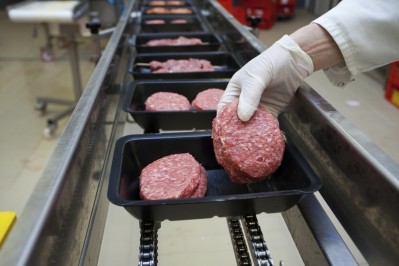Red meat industry’s future depends on communication

But, at the same time, more needs to be done to stress the nutritional benefits that come from eating the recommended levels of red meat in order to tackle micro-nutrient deficiencies in certain sectors of the population.
These were two key conclusions from a conference on the impact of red meat consumption and production on public health and the wider environment.
Delegates at the ‘Sustaining the health of the nation: What role for red meat’ conference in London last week, were told by Dr Tara Garnett, from the University of Oxford, that: “High meat diets equal high environmental impacts, whichever way you look at it.”
However, she added: “Meat is not the nutritional villain of the piece, but it is not the nutritional saviour either.”
Consumer behaviour
While she praised the efforts of farmers, industry and government for the work it had done to change rearing practices and rebalance the system to reduce waste, she said there had been little serious thought about how consumer behaviour could be changed.
“A lot has been said about the idea of eating less but better meat … but we need to think more creatively and robustly about consumer change.
“We also need to make ‘less but better’ pay for farmers and the rural economy and bring the food industry to an area where it can flourish.”
This view was echoed by chief executive of the Soli Association, Helen Browning, who said: “We need to marry healthy diets with sustainable farming – we can’t have a disconnect or we are going to have a very big problem.”
Earlier in the conference Professor Judy Buttriss, director general of the British Nutrition Foundation (BNF), said the “useful contribution” red meat made as part of a healthy and balanced diet had sometimes been blurred by mixed messages in the media.
Heart disease and cancer
“Over the past year there have been lots of eye-catching headlines about meat being a killer because of heart disease and cancer,” she said. “There have been conflicting messages … and the BNF has tried to set the record straight about the role of red meat in the diet.”
This had included providing consumer information about what constituted the recommended daily intake of 70g a day, she added.
Nutritionist Carrie Ruxton said: “I personally think that women don’t eat enough [red meat] and perhaps some men eat too much.”
She said people who were getting most of their calories from non-nutrient dense foods, such as sweets and biscuits as opposed to red meat, were recording below reference intakes for selenium, zinc, iodine, potassium and, for women especially, iron.
“I think consumers [understand] vitamins now but have not yet understood the benefits of minerals or looking for foods that are rich in minerals.
“Red meat contains lots of the nutrients we need at many stages of life,” she added.

















